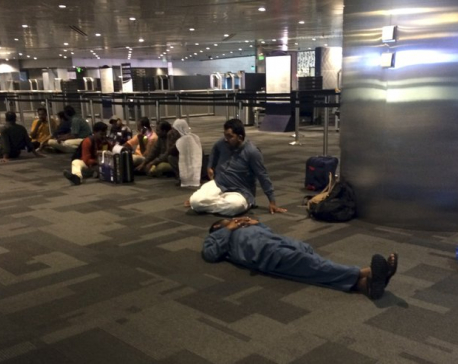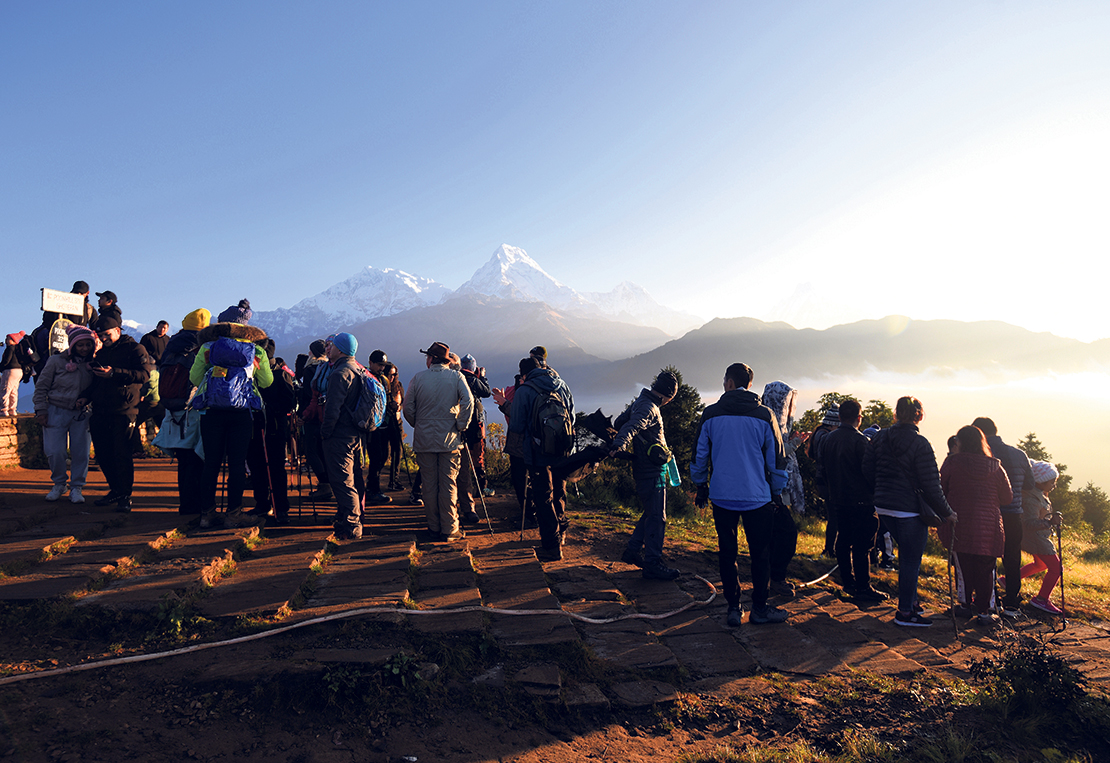
OR
Consensus for amendment
We welcome the decision of Nepali Congress and CPN (Maoist Center), the two main constituents of the ruling coalition, to once again make a concerted effort at garnering consensus on constitution amendment. At a meeting of the top Congress and Maoist leaders on Friday, they decided that more needed to be done to take main opposition, UML, into confidence. UML has threatened to strongly resist the proposed amendments made without its approval, from both the street as well as the parliament. Its leaders say the ruling parties have furnished no credible justification for the proposed amendments.
The Madheshi Morcha, for its part, also seems divided over the amendments. So it makes sense for the ruling parties to try to win over UML, the second biggest party in the parliament, in order to ensure broad acceptability of the amended constitution. As we have time and again pointed out, it is important that at least the four major political forces that own up post-2006 changes—the Big Three plus Madheshi Morcha—see eye to eye on major constitutional issues.
At the least, the issues that have been raised by UML need to be properly debated, both in and outside the parliament. Federal boundaries, citizenship, parliamentary representation and language—the manner in which these disputed constitutional issues are settled will have long-term ramifications on Nepal’s national interest. Hence decisions on such crucial matters should not be made in haste. Nor is it clear the kind of amendments proposed by the ruling coalition will satisfy all protesting Madheshi and Janajati parties. The risk is that just like last year’s first amendment of the constitution failed to unlock the political deadlock—with all the Madheshi parties rejecting it as ‘too little, too late’—the second set of proposed amendments could also be rejected, as Upendra Yadav-led Federal Alliance has already threatened to do. So amendments make sense only if there is clear commitment from the Madheshi parties to abide by them. We thus hope high-level political discussions in the next few days will help narrow the gap between the three sides: the ruling parties, the main opposition and the Madheshi parties.
We would also like urge UML leaders to tone down their saber-rattling. Nothing good will be achieved by needlessly antagonizing the Madheshi and Janajati forces when it is clear that there can be no durable solutions without their buy-in. Meanwhile, it is important that there is a clear, common stand of all the major Madheshi forces and they negotiate as one. The vastly different views on proposed amendments coming from them are confusing and make people doubt their seriousness. One thing is for sure: there can be no breakthrough if all three sides hold fast to their demands and are not ready for hard compromises in broader national interest. Given our recent history of last-minute breakthroughs, there is no reason a win-win formula can’t be worked out in the next few days and presented before the parliament. Let the sovereign parliament then openly debate these amendments and pass them on merit-basis; these are far too important issues to be settled by the fiat of a roomful of political leaders. That is also the democratic way.
You May Like This

Qatar says Kuwait trying to mediate, solve Gulf crisis
DUBAI, United Arab Emirates, June 6: Kuwait is trying to mediate a Gulf crisis between Qatar and its Arab neighbors, which... Read More...

South African trying to climb Everest without permit likely to be banned
KATHMANDU, May 10: A South African man, who was caught while attempting to scale Mount Everest without permit, will most likely... Read More...

'Quitting alcohol easier than trying to control drinking'
People who aim to quit drinking entirely are more likely to achieve this goal if they are treated by a... Read More...



Just In
- 352 climbers obtain permits to ascend Mount Everest this season
- 16 candidates shortlisted for CEO position at Nepal Tourism Board
- WB to take financial management lead for proposed Upper Arun Project
- Power supply to be affected in parts of Kathmandu Valley today as NEA expedites repair works
- Godepani welcomes over 31,000 foreign tourists in a year
- Private sector leads hydropower generation over government
- Weather expected to be mainly fair in most parts of the country today
- 120 snow leopards found in Dolpa, survey result reveals







_20220508065243.jpg)








Leave A Comment